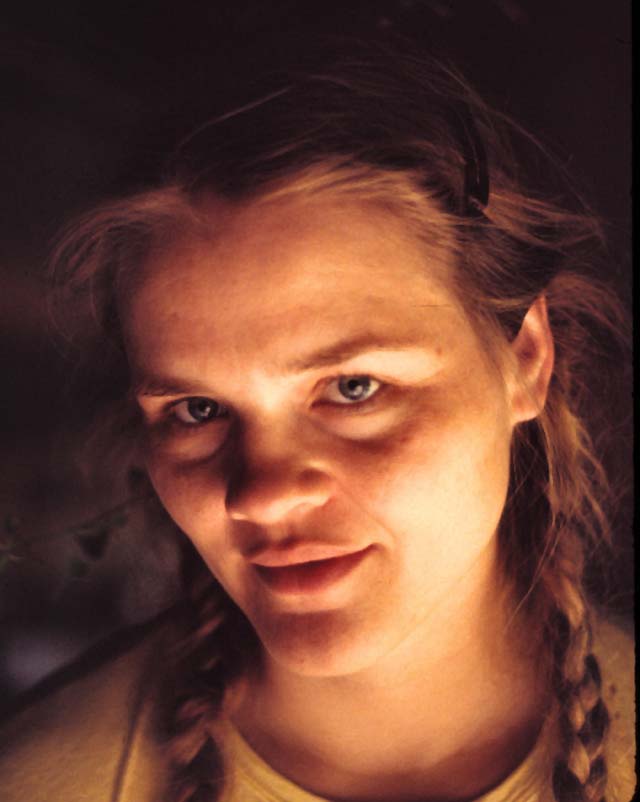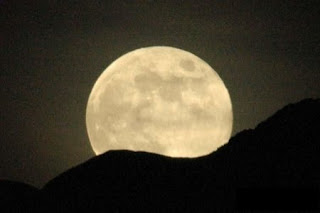For Christmas, we visited with our children in Utah. When ever I go to my daughter's house, I never pack reading material because I know I will always find something in her bookshelves to pique my interest. Actually, she has an extensive collection of classics, and I try to read one of them each time I visit. This visit, I read
Death Comes for the Archbishop, by Willa Cather.
I remember reading some book by Willa Cather in high school. I regret to tell you that I cannot recall the title...it was probably
O Pioneers! or possibly
My Antonia. But the problem was that it didn't really stick in my head as so terrific that I've never forgotten it, making me a life-long Willa Cather fan. Some books did that to me: I read
Les Miserables by Victor Hugo and it transformed me. I read
Wuthering Heights and it was all I could do to write the stupid paper about it because it struck me as a ridiculous soap opera and I could hardly believe it was considered "great literature." (I'm going to give it another chance soon.) I was also moved by
Swiftwater, and
A Separate Peace, and
Tess of the D'Ubervilles, and
A Tale of Two Cities. So, high school English wasn't a complete wash.
But, this time, Willa Cather got me. I started it one night for bedtime reading. The first couple of chapters were a bit slow, but then the next night, it captured me and I read until I dropped the book and fell asleep. I didn't have time to finish it before our departure, so I borrowed it and finished it as we drove south through the Great Basin into the Mohave Desert. Perhaps some books need to be read in their environment.
The book tells the story of a Catholic priest (two of them, actually) who are sent to the southwest after the United States annexes the territory of New Mexico/Arizona/Nevada. They are to reorganize the Church there under American diocesan authority. I was completely fascinated by their story. I kept re-reading the blurb on the back cover to see if this was actually fiction, and the description there emphasized that "from the riches of her imagination and sympathy Miss Cather had distilled a very rare piece of literature..." and "This sparsely beautiful novel by Willa Cather...." But it is astonishing in its detail, historical references, and the voice with which she delivers this tale. It seems like a history book.
But, the environment...the descriptions of the desert southwest are so vivid and told with such obvious affection that if you hadn't been there, you'd want to go just to see with your own eyes the colors and the textures and the amazing sky. We were driving south on an exquisite winter day: blue sky, snow dusted on cedars and red rocks, air so clear you could practically count the needles on the trees. I read this passage, then I read it again, then I paused the music so I could read it to CoolGuy:
The ride back to Santa Fe [from the eastern border area with Arizona, where they'd been visiting a Navajo community]
was something under four hundred miles. The weather alternated between blinding sand-storms and brilliant sunlight. The sky was as full of motion and change as the desert beneath it was monotonous and still,--there was so much sky, more than at sea, more than anywhere else in the world. The plain was there, under one's feet, but what one saw when one looked about was that brilliant blue world of stinging air and moving cloud. Even the mountains were mere ant-hills under it. Elsewhere the sky is the roof of the world; but here the earth was the floor of the sky. The landscape one longed for when one was far away, the thing all about one, the world one actually lived in, was the sky, the sky!
When I lived on the East Coast for ten years, I missed the sky in the West. Where we lived, the sky was seldom more than just a small patch accessible through an opening in the trees. If you went down to the bay side or one of the broad rivers, you could see more of it; but, it was seen through the shimmering layers of humidity and seemed so foreign. When we'd drive out to visit family members each summer, I'd get to western Nebraska and realize that, in addition to the scent of the sagebrush, the thing that made me feel like I was nearing "home" was the vast bowl of blue overhead.
Willa Cather's words about the look of the southwest were captivating, but I eventually was most moved by her description of the bishop's spiritual inner life. The viewpoint alternates between vignettes of the two priests' interaction with various inhabitants of their vast congregation, and the inner lives of the two men, but mainly it told of Jean Latour, the archbishop referenced in the title. As the story advances, many years progress, and the priest ages from a robust prime-of-life man to an aging, introspective man who revisits his regrets and triumphs. At one point of the story, he bids adieu to his life-long friend and fellow priest, who is leaving with fresh supplies to a new out-post of civilization. The bishop realizes that, likely, these two will never meet in life again. He is stricken by the loneliness of his life in this wilderness so far from his French family, and now his dearest friend was also departing.
But, as he enters his study he is overcome by the spirit of love from the One he serves. In the book, the Presence is defined as Mary, the Mother of God, the mother of the Master he serves. It is a Catholic doctrine that we approach the Christ through an intermediary--His earthly mother. But the feelings of love and comfort are articulated by this
: "A life need not be cold, or devoid of grace in the worldly sense, if it were filled by Her who was all the graces;" I do not worship the saints of that church, but I was filled with the same power he described as I read this page.
His sense of loss was replaced by a sense of restoration because he realized that his own relationships were not the source of joy and love in this world, but the true source of all love and joy is our Savior, Jesus Christ. The character in the book developed his relationship with Christ through his worship of Mary and through service to his fellow man. But I was impressed that I need not be weighed down by my sorrows and losses because Christ is waiting to lift them off my bowed shoulders. His whole purpose is to uplift and empower. Our role is to believe and accept. Our job is go out and help others through deed and through spirituality. Each of us needs to internalize this belief and understanding. We cannot fix it on our own--we need Christ.
Maybe Willa Cather wasn't striving for this effect when she wrote this book. I don't know. I didn't "get" her in high school. In fact, I was often annoyed that we were required to postulate on the "author's purpose." Why couldn't we just enjoy without all the examination? As a teacher, I often feel the same: can't we just enjoy the book without picking at it? I think that perhaps I lacked experience to appreciate some of the literature that was presented to me. But, at this stage of my life, revisiting a piece of writing that didn't do it when I was young, is a life-changing event. I'm going to read more books. I need the transformations.





